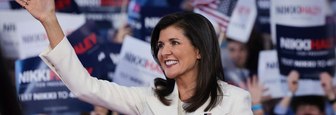As the coronavirus pandemic initially spread across the United States, it forced businesses, schools, and sports leagues to rapidly shut down. Now, each group is debating when it will be safe to resume regular activities. Professional sports leagues are employing a number of methods to safely resume games — including increased testing, “bubbles” to keep the players from COVID-19 exposure, and fan-free games.
But, those measures have not necessarily been effective enough. Multiple athletes on some Major League Baseball teams have tested positive for the coronavirus, and by more than two to one, Americans do not expect baseball will be able to finish its season. They are also pessimistic about the National Basketball Association, and not so sure about the National Hockey League.
Those who have heard and read the most about the professional sports restart are more pessimistic about baseball, but much more optimistic about the NHL and the NBA finishing their seasons. As far as baseball goes, most Americans would be happy to have Major League play postponed once again.
Republicans are more likely than Democrats to support the restart for professional sports, though there is a lot of pessimism about the future of Major League Baseball in particular.
When it comes to college sports, Americans who pay attention to college sports and those who do not seem content with decisions many colleges have made. A plurality approves (45%) of college teams only playing teams in their own conferences with about three in five (61%) of those paying a lot of attention in agreement. A majority (55%) approve of eliminating or limiting intercollegiate sports for the fall semester with 62 percent of those paying a lot of attention to college sports supporting the move.
See the toplines and crosstabs from this week’s Economist/YouGov Poll
Related: Most Americans find it very important to vote in the 2020 presidential election
Methodology: This Economist survey was conducted by YouGov using a nationally representative sample of 1,500 US registered voters interviewed online between August 2 – 4, 2020. This sample was weighted according to gender, age, race, and education based on the American Community Survey, conducted by the US Bureau of the Census, as well as 2016 Presidential vote, registration status, geographic region, and news interest. Respondents were selected from YouGov’s opt-in panel to be representative of all US citizens. The margin of error is approximately 3.3% for the overall sample.
Image: Getty













